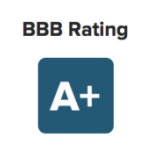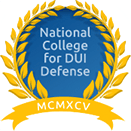Union County, NJ, Juvenile Lawyers
Has your child been charged with a juvenile crime in Union County, New Jersey? Dealing with juvenile charges can be daunting, but you do not have to navigate the legal system alone. You need and deserve help from a skilled juvenile defense lawyer who can tirelessly defend your child’s rights.
The defense lawyers at the Law Offices of Jonathan F. Marshall are ready to do everything we can to reduce or eliminate the potential consequences your child faces. We know that children make mistakes, and we firmly believe they should not spend their lives suffering because of a youthful indiscretion,
To learn more about how a juvenile defense attorney can help your family, contact the Law Offices of Jonathan F. Marshall today for a free consultation.
What Is the New Jersey Juvenile Criminal Justice System Process?
New Jersey’s criminal justice system is quite different for juveniles than it is for adults. When state authorities suspect a minor has committed a legal violation, the juvenile criminal justice system handling their case follows a process that typically includes the following stages:
Taking the Minor into Police Custody
The police can take into custody any minor under 18 for an act of delinquency. An act of delinquency is any act that would be considered a crime, disorderly persons offense, or other legal violation if the offender were an adult. If a police officer has probable cause to believe a minor committed a delinquent act, they can identify the minor and take them into custody for questioning.
Contacting the Minor’s Parents or Guardians
When the police take a minor into custody, they must inform the minor of their Miranda rights, just like they would for an adult upon arrest. Then, the police must reach out to the minor’s parents or guardians to inform them that the police have taken the minor into custody and let them know which police station is holding the minor. The police must wait for the minor’s parents or guardians to arrive before conducting any interrogations. Minors in police custody can only waive their rights to remain silent and contact a defense lawyer if their parents or guardians are present to grant permission.
Offering Stationhouse Adjustment Opportunities
Once the police have had the chance to consider a minor’s situation, they might offer the opportunity for a Stationhouse Adjustment. A Stationhouse Adjustment allows a minor to avoid going to court by taking some action to make up for their behavior, such as penning an apology message, writing a book report, or completing a community service project.
Referring the Case to Juvenile Court
If prosecutors charge a juvenile with an offense, the case will be referred to the Family Court in the county where the child lives. From there, the child’s case might go before a Juvenile Conference Committee (JCC) or a juvenile referee if it is a less serious matter that requires less formal procedures. If the state decides to prosecute, the minor must have a lawyer present to defend their rights during all motions, hearings, and trials.
Holding a Plea Hearing
When a minor faces prosecution for juvenile offenses, their first court date will be for a plea hearing, where the minor must respond to the charges against them by submitting a plea. Depending on the circumstances, a juvenile lawyer might recommend a plea of not guilty or no contest. If an attorney can reach a plea bargain with the prosecutor, they might advise the child to submit a guilty plea in exchange for a lesser sentence or lighter penalty. If there is no plea bargain, the judge will set dates for future motions and an eventual juvenile trial.
Holding Detention Proceedings
Before a trial occurs, the prosecutor might seek detention of the minor at a hearing in front of a judge. Prosecutors usually only seek detention in extreme cases involving severe offenses, such as violent assault or sexual assault. During detention proceedings, the judge will hear the prosecution’s evidence and decide whether to hold or release the minor from custody. Unlike adults, minors in detention have no right to release on bail, so representation from a competent defense lawyer is crucial at this stage.
Holding Hearings and a Trial and Issuing a Sentence
The court will hold a plea hearing for lawyers to discuss options for resolving the case. If no agreement is reached, the court will schedule a preliminary hearing. If a plea deal is not reached at the preliminary hearing, the child’s case will go to trial, where a judge will hear and decide their case. Juveniles do not have the same right to a jury trial as adults. At trial, a defense lawyer will present evidence and argue on the child’s behalf, asking the judge to dismiss the charges against them. If an outright dismissal is not an option and the court finds the minor guilty, a juvenile defense attorney can seek alternatives to incarceration and other harsh penalties upon sentencing. At every stage of the juvenile criminal justice system process, a defense attorney works to obtain the best possible outcome on behalf of their client.
What Are Common Types of Crimes Committed by Juveniles in Union County, NJ?
At the Law Offices of Jonathan F. Marshall, our Union County juvenile defense attorneys commonly handle cases involving the following types of alleged offenses:
Where Are Juvenile Cases Heard in Union County, NJ?
When a minor allegedly commits an offense that would be considered an indictable offense or disorderly persons offense if an adult committed it, the resulting juvenile case goes to the Family Division of the Superior Court for the child’s county of residence. This process is distinct from an adult criminal case, which would go to the court for the county where the alleged offense occurred.
If a minor from Union County faces juvenile criminal accusations, their case will go to the Family Division of the Union County Superior Court in Elizabeth, New Jersey.
What Are the New Jersey Juvenile Sentencing Guidelines?
When a judge adjudicates a juvenile as a delinquent, which is effectively finding them guilty of a crime, they use the following sentencing guidelines to determine the severity of the penalties they will impose:
- Petty Disorderly Persons Offenses – First-time juvenile offenders serve no time but may face up to 30 days’ detention for subsequent adjudications.
- Disorderly Persons Offenses – Juvenile offenders face up to six months’ detention.
- Fourth-Degree Crimes – Juveniles face up to one year of detention.
- Third-Degree Crimes – Juveniles face up to two years of detention.
- Second-Degree Crimes – Juveniles face up to three years of detention.
- First-Degree Crimes – Juveniles face up to four years of detention for most first-degree crimes. Juveniles face up to 10 years in detention for murder and up to 20 years for knowing or intentional murder.
What Are Conditions for Probation in a New Jersey Juvenile Case?
Some juveniles might be eligible for alternative sentencing options, such as probation. During probation, the state releases a juvenile from detention but supervises them closely and only allows them to avoid detention if they show good behavior. Juveniles on probation are often subject to strict requirements, such as:
- Maintaining regular contact with a probation officer
- Taking regular drug tests
- Attending school or finding and maintaining employment
- Paying fines as ordered
- Obtaining permission to leave the state
- Following all relevant laws
- Refraining from accessing weapons, including BB guns and paintball guns
- Completing community service projects
- Getting treatment for health or behavioral issues
What Can a Union County Juvenile Defense Lawyer Do for My Child’s Case?
The juvenile criminal justice system has many unique rules and procedures, and an unfavorable outcome in a juvenile case could have life-changing consequences for a young person. For these reasons, hiring an attorney with real-world experience in the juvenile criminal justice system is essential if your child is facing charges.
At the Law Offices of Jonathan F. Marshall, you can count on our experienced juvenile defense attorneys to defend your child’s rights and best interests by:
- Evaluating the situation, advising you of your child’s rights, and helping you understand what to expect during a free, confidential consultation session
- Advising you during interviews and communicating with others on your behalf
- Conducting an independent investigation to identify and preserve valuable evidence, locate and interview witnesses, and build a strong defense case
- Gathering personal references and letters of character from reliable individuals
- Keeping your child’s juvenile case out of the adult criminal justice system
- Working with prosecutors in an attempt to reach favorable plea bargains or case dismissals
- Representing your child during motions, hearings, and trials before a juvenile judge
- Advocating on your child’s behalf during sentencing and seeking detention alternatives
Contact a Union County Juvenile Crime Defense Lawyer Today
If your child has been charged juvenile charges in Union County, New Jersey, contact the Law Offices of Jonathan F. Marshall immediately. Our team includes multiple former prosecutors, so we know what it takes to mount an effective juvenile defense. Further, we have an office conveniently located near Union County Superior Court in Elizabeth, New Jersey. Contact us today for a free, in-person consultation session.













